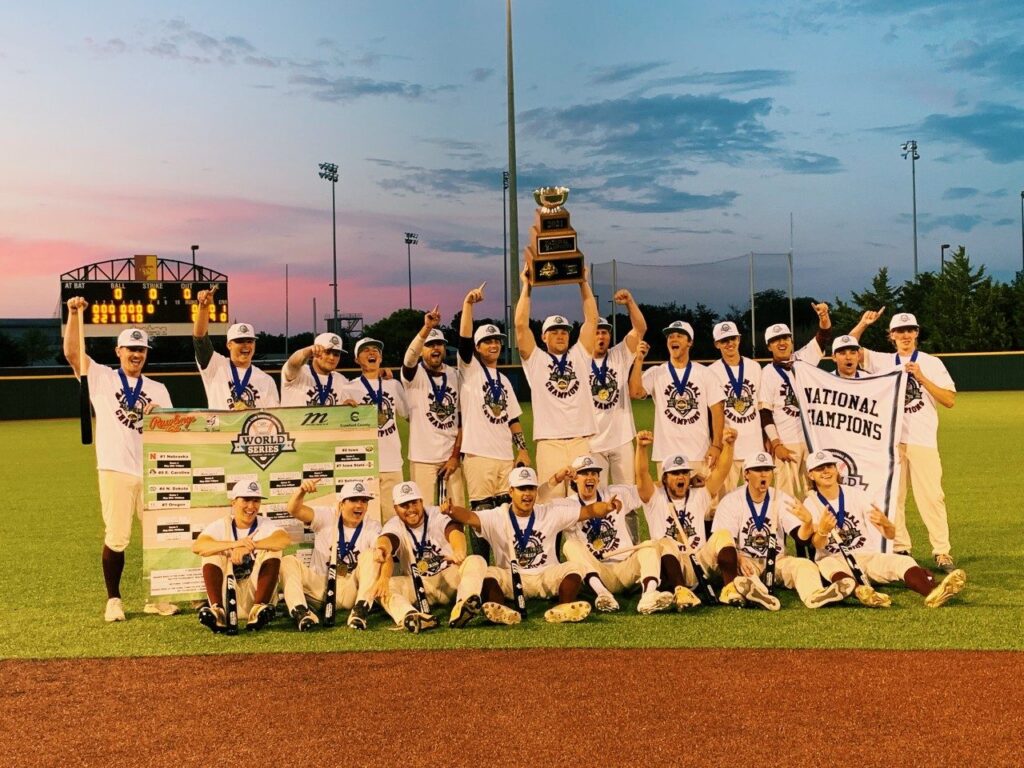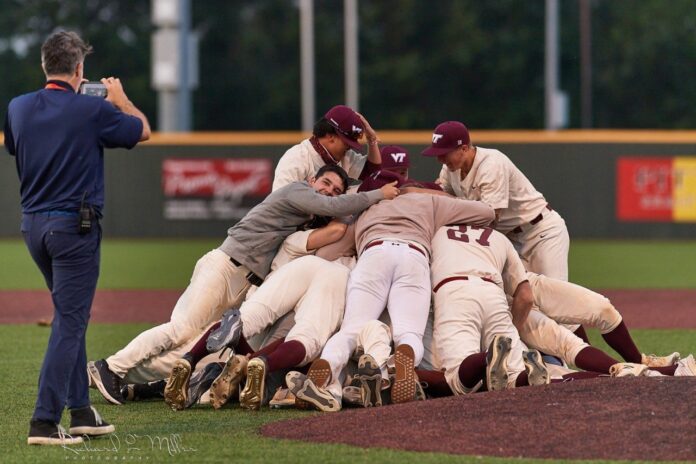Like athletic teams around the world, the Virginia Tech club baseball team’s spring 2020 season was cut short because of the coronavirus pandemic.
But these 28 Hokie athletes more than made up for it this year.
In historic fashion, the team won the National Club Baseball Association’s World Series in June, with a 6-0 win over Iowa State. Virginia Tech junior Braden Huebsch pitched a perfect game to lead the Hokies to its first-ever World Series title.
“To come out with a win was just an amazing feeling,” said Jonathan Spaulding ’21, the team’s starting shortstop for the World Series and past president of the team. “We play for each other and that, in and of itself, is enough for us to have a competitive edge.”
The victory underscores the ways that Virginia Tech’s 29 sport clubs turned a challenging pandemic year into an opportunity.
After the coronavirus halted all practices and competitions for these teams in the spring of 2020, the approximately 1,164 sport club athletes returned to campus in the fall to practice under strict public health guidelines to limit the spread of COVID-19. The teams were limited to practice only, no travel for competitions, and regular COVID-19 health check-ins and testing were required. They also had to find creative ways to practice with limited physical contact, based on guidelines that the NCAA and Virginia High School League established for varsity and high school athletics.
This involved emphasis during practices on conditioning and drill-based activities, said Julie Rhoads, assistant director for sport clubs with Virginia Tech Recreational Sports. The program also provided students with personal protective equipment.
“We were able to practice and sustain, once the program was in a routine, which was really amazing because you could see the students needed it,” Rhoads said. “They needed that outlet from online learning.”
Still, the pandemic did not seem to dull students’ interest and enthusiasm for joining many of the sport club teams. Just after the start of the fall 2020 semester, at least 55 students tried out for club baseball, competing for only seven spots.
By the spring, all sport clubs were allowed to compete against other schools, but travel was limited to a four-hour radius from Blacksburg to eliminate the need to stay overnight. COVID-19 tests were required before and after travel for all athletes.
The baseball club had to seek out locations to meet rivals for games that were within this radius. And because most Virginia universities did not allow their sport clubs to compete during the spring, the baseball club joined a conference that included many North Carolina club teams, in order to compete.


